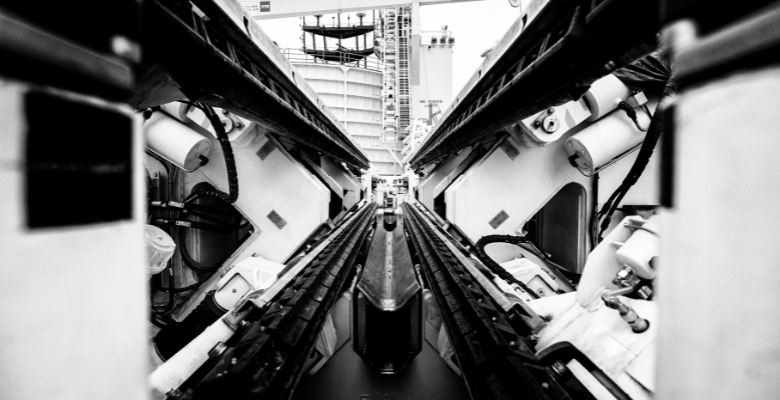Electrifying offshore engineering with MAATS Tech

When MAATS Tech approached us looking to explore our electro-mechanical lifting and positioning products within their world-leading subsea cable laying equipment we were well positioned to support. With proven experience in the marine environment, our engineering team worked closely with MAATS to explore the application of our electro-mechanical screw jacks for bespoke deck lay equipment required onboard one of the world’s most advanced cable-laying vessels.
Driven by the aim of electrifying the two 45Te 4-Track Tensioners that had been commissioned for the vessel, MAATS reached out to Power Jacks for an electro-mechanical solution to actuate the lower tracks. Principal Engineer at MAATS, Mark Groves said,
“We were initially attracted to working with Power Jacks as they are a UK-based manufacturer which makes things relatively local for us. The fact they are located in the Aberdeen area where many of our operations are based meant communications were more seamless and we could resolve any challenges quicker and closer to home.”
He continued,
“We were aware that Power Jacks had worked on similar applications in the past, so we knew that they were experienced in the marine environment. The machinery we design is very bespoke and this was the first time using this type of equipment for this application but the engineering team at Power Jacks were very happy to support and advise us on how best to mount the screw jacks.”
Whilst hydraulic cylinders were used to actuate the upper tracks on the tensioner, the lower tracks are positioned by Power Jacks precision 500kN E-Series Machine Screw Jacks. The use of screw jacks on the lower tracks gives this MAATS tensioner the advantage of more precise positioning for better contact control compared to hydraulic only systems.
Having been exposed to the potential that electro-mechanical actuation has over hydraulic alternatives, Mark can see the benefits. He shared,
“The long-term maintenance associated with screw jacks is more attractive than hydraulic systems which can be susceptive to contamination, leaks and extreme weather conditions leading to reduced reliability. With screw jacks, as long as you keep on top of the lubrication schedule there is not much else that can go wrong. There is also a big benefit in having purely electrical machines on board vessels with no requirement for a HPU and the complexities that come with this.”
Asked if he saw electro-mechanical systems becoming more prominent in the future, Mark shared,
“Having purely electrical machinery on board is much more appealing as there can be fewer associated services and all the advantage that brings. As our customers strive to become cleaner and greener, electro-mechanical alternatives are definitely something we’re keen to explore more.”
